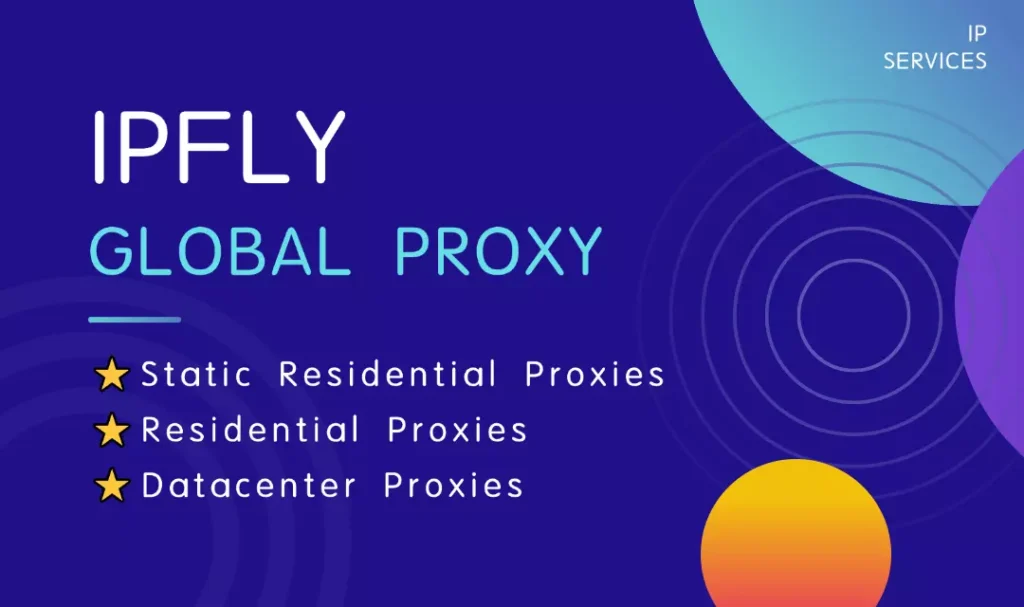In the vast and complex world of the internet, data flows between billions of devices every second. To navigate this world safely, privately, and effectively, users and businesses rely on a fundamental and powerful tool: the network proxy. While the term might sound technical, the concept is straightforward, and its applications are essential for everything from personal privacy to large-scale business intelligence.
This ultimate guide will serve as your complete resource for understanding network proxies. We’ll explore the core principles of how they work, break down the different types you’ll encounter, cover their most critical use cases, and discuss what to look for in a high-quality proxy service.

What is a Network Proxy? The Core Principle
At its most basic level, a network proxy is an intermediary server that acts as a gateway between a user and the internet. Instead of connecting directly to a website, your traffic is first routed through the proxy server.
Think of it like a professional mail forwarding service.
Without a proxy: You send a letter (your data request) directly from your home address (your IP address) to a recipient (a website). The recipient sees your personal address and sends the reply directly back to you.
With a proxy: You send your letter to the mail forwarding service (the proxy server). The service then puts your letter in a new envelope with its own address and sends it to the recipient. The recipient only sees the address of the forwarding service and sends the reply there. The service then forwards the reply back to your home.
In this transaction, your personal address is shielded, and your location appears to be that of the forwarding service. This simple act of rerouting is the foundation of a proxy’s power.
How Does a Network Proxy Work? A Step-by-Step Look
The magic of a proxy lies in a simple, lightning-fast sequence of events:
1.Client Request: Your device (the client) sends a request to access a website, such as example.com.
2.Routing to Proxy: This request is first sent to the network proxy server you are configured to use.
3.Repackaging the Request: The proxy server receives the request. It strips your personal IP address from the request and replaces it with its own IP address.
4.Forwarding to Destination: The proxy server forwards this newly packaged request to the web server for example.com.
5.Server Response: The web server sees the request coming from the proxy’s IP address and sends the website’s data back to the proxy.
6.Forwarding to Client: The proxy server receives the data and forwards it back to your device.
To you, the process is seamless and nearly instantaneous. To the website, your digital identity is that of the proxy server.
The Proxy Spectrum: Different Types of Network Proxies
Not all proxies are created equal. They are sourced from different places and behave in different ways, making them suitable for different tasks.
Residential Proxies: These use IP addresses that are assigned by an Internet Service Provider (ISP) to a real homeowner. Because they are indistinguishable from the traffic of a normal online user, they are considered the highest quality and most trustworthy type of proxy.
Datacenter Proxies: These use IP addresses that are owned by and housed in commercial data centers. They are extremely fast and stable but are easily identified by websites as non-human. This makes them more likely to be blocked during sensitive tasks.
Mobile Proxies: These use IP addresses assigned by mobile carriers to individual smartphones and tablets. For accessing apps and platforms that are primarily mobile-based, these are the gold standard of trust.
Static vs. Rotating Proxies: A static proxy provides you with a single, unchanging IP address, ideal for tasks that require a consistent identity (like managing an online account). A rotating proxy automatically switches your IP address with every request or after a set time, ideal for large-scale data gathering.
Why Use a Network Proxy? Critical Use Cases
The applications of network proxies are vast, spanning both personal and professional needs.
For Individual Users: Privacy & Access
Privacy Protection: Shield your real IP address from websites, trackers, and other online entities.
Bypassing Geo-restrictions: Access content, like streaming services or news sites, that is only available in certain countries.
Enhanced Security: A proxy can act as a buffer between you and the public internet, filtering out malicious content.
For Businesses: Data & Operations
Web Scraping & Market Research: Gather public data from websites at scale without being blocked. Residential rotating proxies are essential for this task.
Ad Verification: Ensure that your digital ad campaigns are being displayed correctly to the intended audience in different geographic locations.
Social Media Management: Manage multiple brand accounts from a single dashboard without triggering security alerts.
Internal Network Security: Companies use internal (or “forward”) proxies to filter employee traffic, block malicious sites, and monitor network activity.
Sourcing and Implementation: What to Look For
When selecting a proxy service for professional applications, the quality and type of the IP pool are the most critical factors. The goal is to use IPs that are ethically sourced, have a clean reputation, and match the requirements of your task.
For tasks requiring the highest level of authenticity, a network of residential IPs is the industry standard. A specialized provider like IPFLY, for example, offers a managed network of high-reputation residential IP addresses. This provides businesses with a reliable source of clean IPs, ensuring their operations run smoothly and without interruption. Access to such a high-quality network is a key differentiator for any serious data-driven project.
New to proxies and unsure how to choose strategies or services? Don’t stress! First visit IPFLY.net for basic service info, then join the IPFLY Telegram community—get beginner guides and FAQs to help you use proxies right, easy start!

An Essential Tool for the Digital Age
A network proxy is one of the most fundamental and versatile tools on the internet. It is the simple but powerful science of a digital intermediary that unlocks enhanced privacy, unrestricted access, and a vast range of business capabilities. By understanding how a proxy works and the different types available, you can better navigate the digital world, protect your identity, and harness the power of web data.


